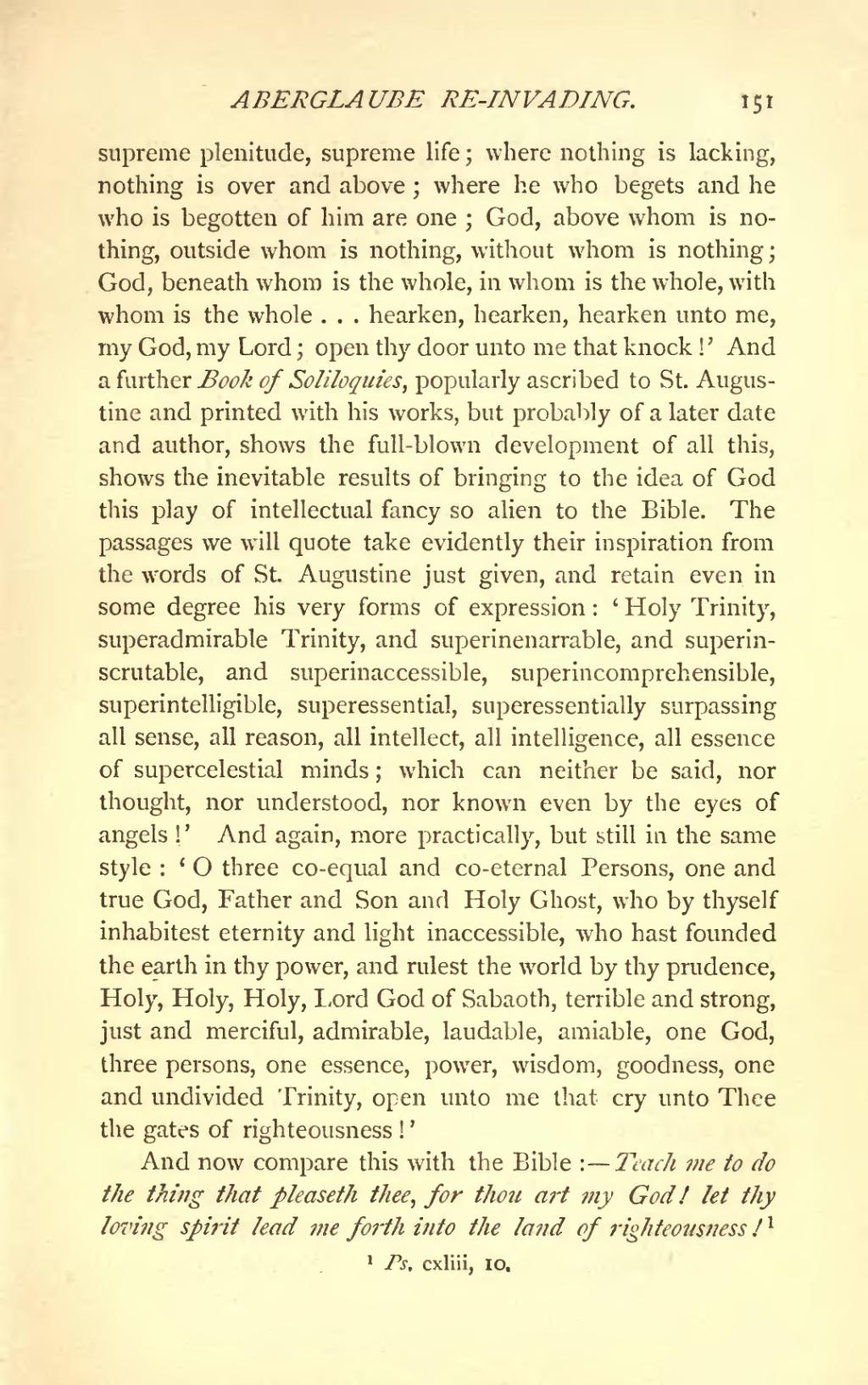supreme plenitude, supreme life; where nothing is lacking, nothing is over and above; where he who begets and he who is begotten of him are one; God, above whom is no thing, outside whom is nothing, without whom is nothing; God, beneath whom is the whole, in whom is the whole, with whom is the whole…hearken, hearken, hearken unto me, my God, my Lord; open thy door unto me that knock!' And a further Book of Soliloquies, popularly ascribed to St. Augustine and printed with his works, but probably of a later date and author, shows the full-blown development of all this, shows the inevitable results of bringing to the idea of God this play of intellectual fancy so alien to the Bible. The passages we will quote take evidently their inspiration from the words of St. Augustine just given, and retain even in some degree his very forms of expression: 'Holy Trinity, superadmirable Trinity, and superinenarrable, and superinscrutable, and superinaccessible, superincomprehensible, superintelligible, superessential, superessentially surpassing all sense, all reason, all intellect, all intelligence, all essence of supercelestial minds; which can neither be said, nor thought, nor understood, nor known even by the eyes of angels!' And again, more practically, but still in the same style: 'O three co-equal and co-eternal Persons, one and true God, Father and Son and Holy Ghost, who by thyself inhabitest eternity and light inaccessible, who hast founded the earth in thy power, and rulest the world by thy prudence, Holy, Holy, Holy, Lord God of Sabaoth, terrible and strong, just and merciful, admirable, laudable, amiable, one God, three persons, one essence, power, wisdom, goodness, one and undivided Trinity, open unto me that cry unto Thee the gates of righteousness!'
And now compare this with the Bible:—Teach me to do the thing that pleaseth thee, for thou art my God! let thy loving spirit lead me forth into the land of righteousness![1]
